Education key to bear keeper transformation
27 August 2014
The transformation from a bear hand at a bear bile farm to a bear keeper at a sanctuary is a testing and potentially controversial switch.
Ongoing formal training at Nanning Bear Farm – the former bile farm Animals Asia is turning into a sanctuary – has seen four former farmhands visit the animal welfare NGO’s sanctuary in Chengdu, China.
It’s an initiative in line with Animals Asia’s policy that the difference between hurting and helping animals is largely a matter of education.
Liang Meilu, Qin Dalei, Ruan Chaoxi and Huang Shuyu each spent a week working alongside experienced bear keepers. Here, they were exposed to the sanctuary’s working practices such as husbandry routines, feeding, enrichment set up, weekly team meetings and reporting.
The opportunity was opened up to all after the team’s hard work and commitment to learn had become clearly apparent.
The new recruits also enjoyed a session with Resident Veterinarian Mandala Hunter-Ishikawa learning about the health implications of bear bile farming.
The chance for formal training and the experience of seeing a working sanctuary are a world away from the team’s life as farmhands employed to carry out day to day duties at Nanning Bear Farm with little or no training.
Bear and Vet Team Director Nic Field said:
“The new staff embraced the work and demonstrated real interest and empathy for the bears and our work. I was so proud to see our bear team take real pride in sharing their knowledge and experience – a real testimony to the capacity building at our Chengdu sanctuary over the years and symbolic of how animal welfare is growing in the conscience of China.”
Since Animals Asia took over the running of the facility, former bear farm staff have been undergoing training along the lines of Animals Asia bear workers through formal and informal training sessions in situ and at CBRC.
While not all former bear farm hands will make the grade, those who show an aptitude and willingness to learn are rewarded with the training they need to become part of the Animals Asia family.
Senior Bear Manager Heidi Quin said:
“Retraining the Nanning team really is key to the success of this project. We are slowly changing peoples' mindsets, and showing them what it means to care for bears with compassion and recognition of the individual. This ultimately creates ambassadors for animal welfare who go on to spread the message amongst their friends and family, in a ripple effect which once going can't be stopped.”
“All this new knowledge is empowering them and a far cry from the menial tasks they used to perform. I know personally that even after almost 13 years working alongside animals I learn something new every single day, so it never stops.”
Animals Asia founder and CEO, Jill Robinson MBE said:
“If we believe that education is a key part of our work in promoting animal welfare in China and Vietnam then we must be willing to accept that once made aware of animal cruelty an individual’s attitudes can be transformed. This has been proven time and time again as we have grown through sanctuary development and rescuing the bears.
“We also have to remember while we are focused on the release of over 10,000 bears behind cages – from a wider perspective decisions made on the future of bear bile farming will take into account economics and jobs. Our thinking, training, education and future must reflect that. ”
BACK
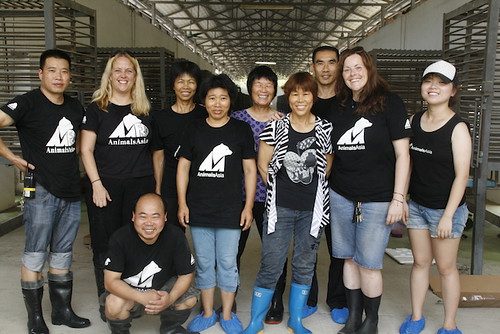
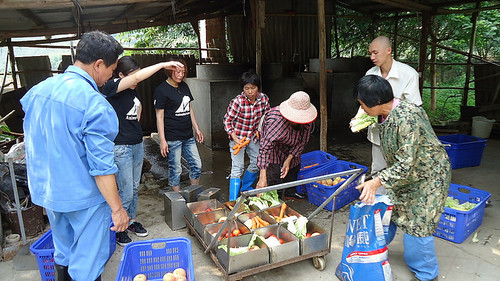
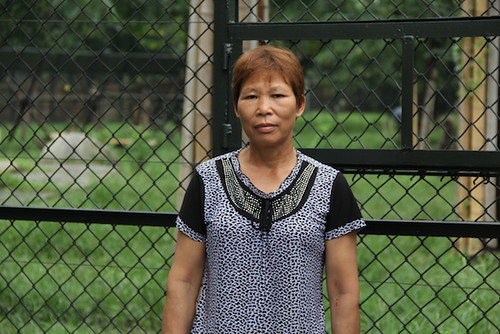





 Freedom after two decades: Moon bears Nang and Mua rescued
Freedom after two decades: Moon bears Nang and Mua rescued
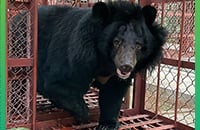 With heavy hearts we say goodbye to our beloved Tulip
With heavy hearts we say goodbye to our beloved Tulip
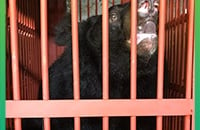 Three moon bears rescued from notorious bear bile farming hotspots in Vietnam
Three moon bears rescued from notorious bear bile farming hotspots in Vietnam
